Paspalum
Back | Salinity Indicator Plants Home | Common name home | Scientific name home | Photo Gallery | Glossary
| Paspalum photos | Family Name: Grass (Poaceae syn. Gramineae) |
| Scientific Name: | Paspalum dilatatum | 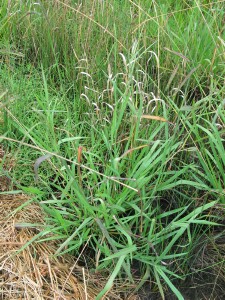 Photo: A J Brown |
Status: | Native Argentina. Naturalised in all States except the Northern Territory. | |
Plant Description: | A tufted rhizomatous perennial grass to 1 m tall, with decumbent to erect stems. Leaf-blades are flat, to 20 cm long and 15 mm wide, hairless and smooth. Leaf-sheaths of the lower leaves are hairy. Flower-heads are consist of 2-10 semi-erect racemes to 12 cm long, each with four rows of densely packed spikelets on one side of the rachis (flower stalk). Spikelets are paired, green or purplish, ovate in shape and slightly hairy. | |
Habitat: | Grows in drains and ditches, along river banks and lake edges and as a weed in lawns and other moist areas. Tolerates waterlogging. Normally grows in freshwater environments but can withstand brackish waters. | |
Comments: | Paspalum is often sown as a component of irrigated pastures. As such it can be irrigated with slightly saline water provided sufficient leaching fraction is applied. |
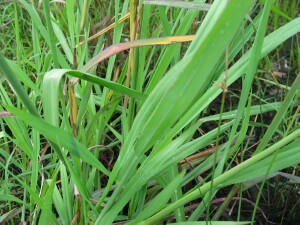 Leaves of Paspalum Photo: A J Brown | 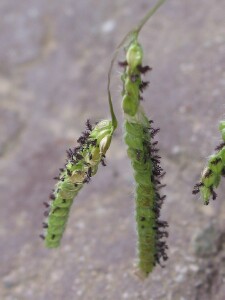 Paspalum spikelets with exserted anthers Photo: A J Brown |
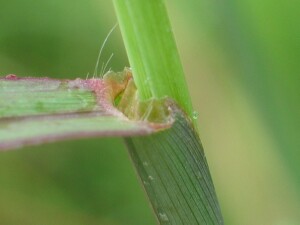 Paspalum ligule at leaf and stem junction Photo: A J Brown | 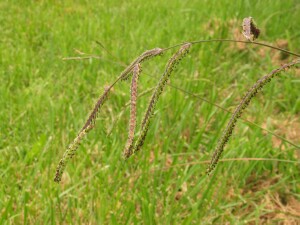 Paspalum flower heads Photo: A J Brown |
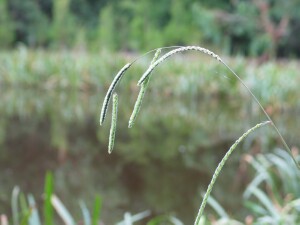 Paspalum flower heads Photo: A J Brown |


